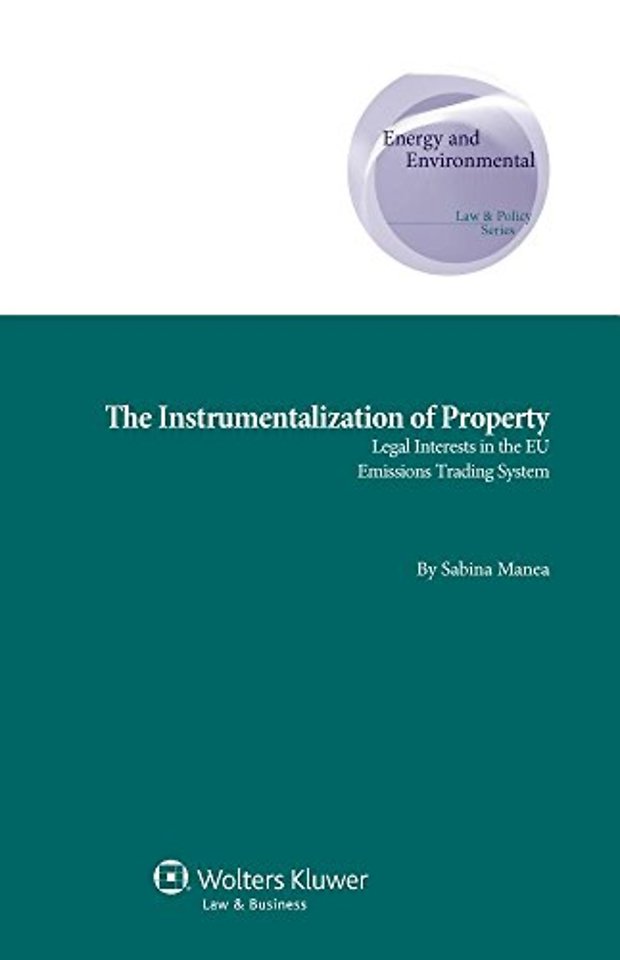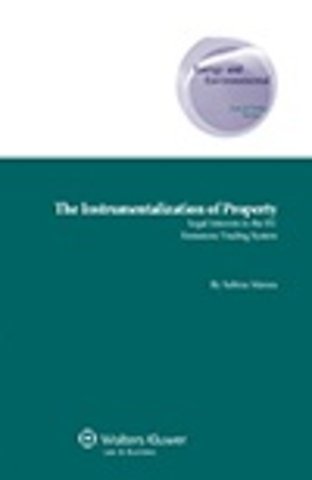The Instrumentalization of property
Legal interest in the EU emissions trading system
Samenvatting
Energy and Environmental Law and Policy Series Volume 26
This book examines the nature of the legal interests in emissions allowances
(called emissions entitlements), focusing on the ‘property’ nature of the
tradable instruments created by the European Union Emissions Trading System
(EU ETS) with the goals of achieving cost-effective emissions reductions to
levels scientifically required to tackle climate change and supporting the
Union-wide transition to a low-carbon economy. The author presents a rigorous
analytical framework, and introduces a new category of instrumental property
which encompasses entitlements created to achieve regulatory goals. In the
process, the author addresses such questions as the following:
- How do we craft new, effective tradable permit regimes which can achieve
ambitious public policy goals?
- What significant problems are caused by uncertainty as to the nature of
emissions entitlements?
- How do the property characteristics of exclusion, transfer and use apply to
tradable entitlements?
- What is the role of contract law in the emissions market?
- How do tradable entitlements deal with the risk of regulatory intervention?
- How can emissions entitlements be compared to other rights regimes, namely
intellectual property rights, milk quotas and spectrum licences?
- Can security rights be created in tradable entitlements, and can such rights
be adequately enforced and protected?
Many practical issues arise in the course of the analysis – for instance, the
author provides proposed amendments to the standard-form agreements used in
emissions trading.
For practitioners and policymakers working to ensure the continued viability
of the EU ETS as a tool of environmental policy, this book will prove of
immeasurable value. In addition, the book provides a springboard for the
conceptual exploration of the contemporary nature of property, the traditional
understanding of which needs to be revisited in order to enable such rights to
meet the requirements of new, and specifically regulatory, contexts. The book
therefore speaks to the environmental community, to regulators, economists,
scientists, lawyers and campaigners – to all those who are preoccupied with
the effectiveness of environmental policy. The book also speaks to property
lawyers and theorists, as it illustrates the changing nature of property in
the regulatory state.
Specificaties
Inhoudsopgave
Anderen die dit boek kochten, kochten ook
Net verschenen
Rubrieken
- aanbestedingsrecht
- aansprakelijkheids- en verzekeringsrecht
- accountancy
- algemeen juridisch
- arbeidsrecht
- bank- en effectenrecht
- bestuursrecht
- bouwrecht
- burgerlijk recht en procesrecht
- europees-internationaal recht
- fiscaal recht
- gezondheidsrecht
- insolventierecht
- intellectuele eigendom en ict-recht
- management
- mens en maatschappij
- milieu- en omgevingsrecht
- notarieel recht
- ondernemingsrecht
- pensioenrecht
- personen- en familierecht
- sociale zekerheidsrecht
- staatsrecht
- strafrecht en criminologie
- vastgoed- en huurrecht
- vreemdelingenrecht









